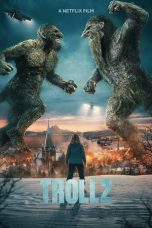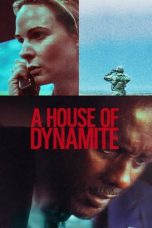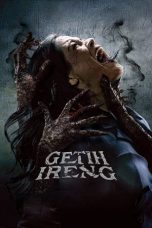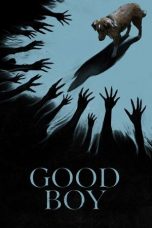Antichrist (2009) Movie Review: Where to Watch Online
Lars von Trier’s Controversial Masterpiece of Grief and Horror
Released in 2009, Antichrist is a deeply unsettling psychological horror film written and directed by Danish auteur Lars von Trier. Known for its provocative imagery, intense performances, and philosophical undertones, Antichrist stands as one of von Trier’s most polarizing works. The film, starring Willem Dafoe and Charlotte Gainsbourg, delves into themes of grief, guilt, and the darker aspects of human nature, framed against a backdrop of visceral horror.
In this review, we’ll explore the film’s narrative, themes, and artistic impact, while also providing a guide to where viewers can stream or purchase Antichrist in the U.S.
Plot Overview
Antichrist begins with a tragic event: a married couple (referred to only as “He” and “She,” played by Willem Dafoe and Charlotte Gainsbourg) loses their young son, who falls to his death from a window while they are having sex. Overwhelmed with grief and guilt, the couple retreats to a remote cabin in the woods called “Eden” in an attempt to heal and process their trauma.
The husband’s approach to therapy is clinical—he is a therapist and attempts to treat his wife’s profound grief with rational methods. However, the wife’s grief is far more emotional, manifesting in increasingly disturbing ways. As they isolate themselves in nature, their relationship deteriorates into violence, paranoia, and madness. The forest surrounding the cabin becomes a metaphorical landscape where chaos reigns, and their inner demons are unleashed.
As the film progresses, it takes on an increasingly surreal and horrifying tone, blurring the line between psychological horror and body horror. The cabin becomes the setting for a series of shocking and grotesque acts as the characters’ pain, guilt, and repressed emotions spiral out of control. The film culminates in a harrowing climax that leaves audiences questioning the nature of evil, nature, and humanity itself.
Themes of Grief, Guilt, and Gender
At its core, Antichrist is a meditation on grief and how it can distort the human psyche. The characters’ emotional pain manifests as physical and psychological violence, and the film explores the destructive power of guilt.
The movie also delves into gender dynamics and the representation of women in horror. Charlotte Gainsbourg’s character embodies a complex mix of vulnerability and aggression, often mirroring the archetype of the “hysterical woman” found in classic horror films, while also challenging it. Her descent into madness is both a reflection of her overwhelming grief and a commentary on the historical fear of female sexuality and power.
The husband’s rational, controlling approach to his wife’s grief echoes traditional patriarchal attempts to “control” female emotion. His methods fail, leading to an inversion of the typical gender roles in horror, where the woman becomes the aggressor. The film raises provocative questions about power, control, and the destructive potential of both rationality and emotion when pushed to extremes.
Nature and Chaos as Characters
In Antichrist, nature itself becomes a central character. The forest around the cabin is depicted as a malevolent force, indifferent to human suffering and full of disturbing symbolism. Von Trier paints nature as chaotic, cruel, and intrinsically connected to the darker aspects of human nature. Animals in the forest—such as a talking fox that delivers the chilling line “Chaos reigns”—further underscore the film’s themes of natural disorder and the inevitable breakdown of order in the face of overwhelming grief.
The forest also represents a return to primal instincts and emotions. As the couple isolates themselves, they lose touch with the civilized world and descend into a more animalistic, instinct-driven state. Von Trier’s portrayal of nature is far from idyllic; it’s a force that brings out the worst in the characters, stripping them of their humanity and leaving only pain and violence.
A Visually Striking and Provocative Film
Antichrist is visually stunning, filled with haunting and symbolic imagery. The opening scene, shot in black-and-white slow motion to the operatic strains of Handel’s “Lascia ch’io pianga,” is a devastatingly beautiful depiction of the tragic accident that sets the film in motion. This juxtaposition of beauty and horror is a hallmark of von Trier’s style, and the film is filled with moments where the grotesque is rendered in a disturbingly artful way.
The movie’s use of symbolism is dense, often drawing from religious imagery (hence the title) and psychoanalytic theory. The recurring motifs of nature, sexuality, and death are woven into the narrative in ways that are often open to interpretation. Von Trier doesn’t shy away from graphic violence, with several scenes that are notorious for their shocking brutality—moments that earned the film both praise and condemnation upon its release.
While these scenes are often difficult to watch, they serve to underline the film’s themes of suffering and the limits of human endurance. Antichrist is not a film for the faint of heart, and its provocative content has sparked much debate about its artistic value versus its shock factor.
Performances: Dafoe and Gainsbourg
Willem Dafoe and Charlotte Gainsbourg deliver powerhouse performances in Antichrist. Dafoe’s character is cold, rational, and detached, serving as a counterbalance to Gainsbourg’s deeply emotional and erratic portrayal of grief. His attempts to remain in control and suppress his own emotions gradually unravel as the film progresses, leading to a devastating collapse of his stoic exterior.
Charlotte Gainsbourg’s performance is raw, fearless, and deeply unsettling. She portrays the full spectrum of grief, from numbness to uncontrollable rage, and her willingness to dive into the darkest aspects of her character earned her the Best Actress award at the Cannes Film Festival. Gainsbourg’s portrayal of her character’s descent into madness is both tragic and terrifying, anchoring the film with an emotional weight that keeps the viewer invested, even during its most shocking moments.
Where to Watch Antichrist Online
For those interested in experiencing Antichrist, here’s where you can find the film available for streaming or purchase in the U.S.:
Streaming Services
- Hulu: Antichrist is available to stream on Hulu with a subscription, offering the film in high-definition for those looking to experience its unsettling beauty.
- Criterion Channel: As part of the Criterion Collection, Antichrist is occasionally available on the Criterion Channel, known for its selection of auteur-driven films.
Rental/Purchase Options
- Amazon Prime Video: The film can be rented or purchased in both HD and SD formats on Amazon Prime Video.
- Apple TV/iTunes: Antichrist is available for rental or purchase on Apple TV/iTunes, where you can download the film for offline viewing.
- Google Play Movies & TV: The movie is also available for rent or purchase through Google Play, offering various streaming and download options.
- YouTube Movies: Rent or buy Antichrist on YouTube Movies, allowing you to watch it on a variety of devices, including smart TVs, smartphones, and laptops.
Why Antichrist Is Worth Watching
Antichrist is not an easy film to watch, but it’s one that challenges its audience in ways that few movies dare. It’s a visually arresting, thematically rich, and deeply disturbing film that pushes the boundaries of horror and psychological drama. Lars von Trier’s exploration of grief, guilt, and human nature is haunting and thought-provoking, even as it shocks and unsettles.
For viewers willing to engage with its dark themes and challenging content, Antichrist offers a unique and unforgettable cinematic experience. It’s a film that lingers in the mind long after the credits roll, sparking conversations about the nature of evil, the role of grief in our lives, and the limits of human endurance.
Conclusion
Antichrist (2009) is a harrowing exploration of grief and human nature, wrapped in the trappings of psychological horror and dark philosophy. With outstanding performances from Willem Dafoe and Charlotte Gainsbourg, a bold vision from Lars von Trier, and striking visuals, the film remains one of the most controversial yet impactful works of the 2000s. If you’re a fan of thought-provoking cinema that pushes boundaries and challenges your perceptions, Antichrist is a must-watch.
















